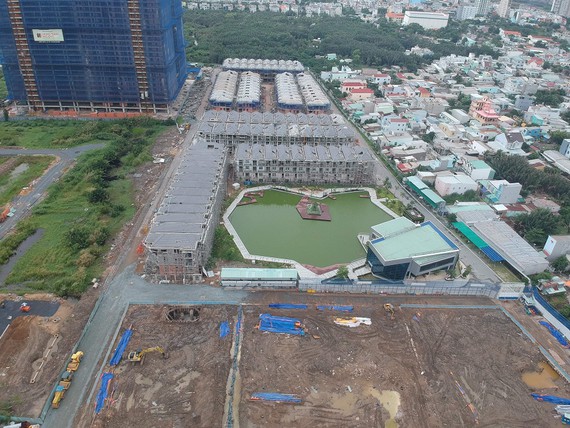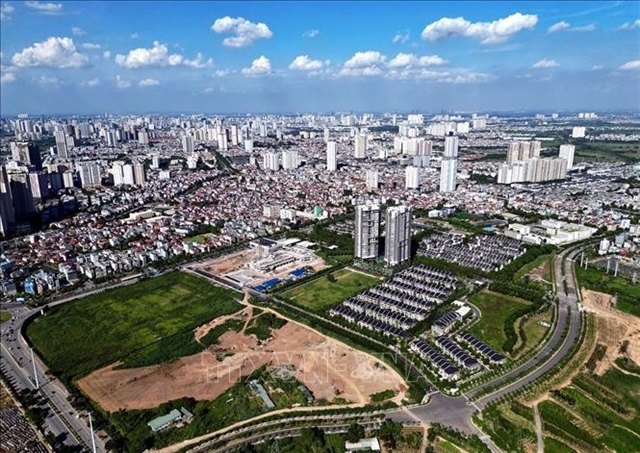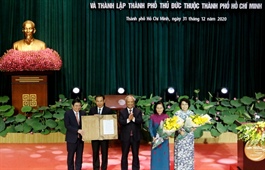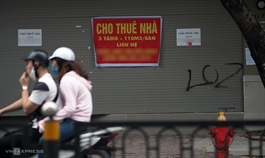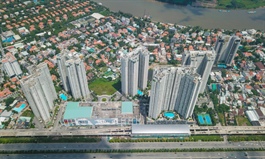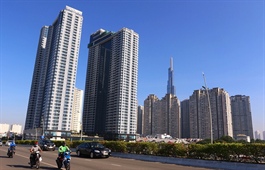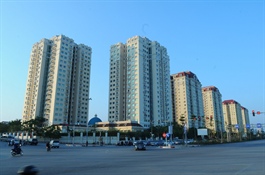Pending projects to benefit from amended Land Law
Pending projects to benefit from amended Land Law
The Government has recently amended a number of regulations in the Land Law via Decree 148, which will be effective from February 2021. Accordingly, thousands of projects on public land that were being held up for last several years will now benefit and be able to settle long standing disputes.
The 110-villa project of Hung Loc Phat Real Estate Investment JSC is a typical case of the project has public land interlaced.
|
Relief for disputed projects
According to Decree 148, the land plots interconnected with real estate projects will not be auctioned, but assigned or leased. This new rule is expected to release a burden on thousands of real estate projects that were linked to land related problems. From 8 February 2021, land or leased small plots managed by the State, organizations and individuals will have to meet five criteria. First, the land will belong to the land fund that has been recovered via decision of a competent state agency; the land has not been assigned; the land has not been leased; or the land is being assigned for management according to regulations.
Second, the land has a required area and minimum size is allowed to split according to regulations of the Provincial People's Committee. Third, the land is consistent with the master plan, land use plan, rural residential area construction plan, and new rural commune construction plan approved by a competent authority. Fourth, works identified in land use master plans are approved and publicly announced by competent agencies. Fifth, the land expected to be allocated or leased has no dispute, complaint or violation, and the settlement documents have been issued according to the provisions of law.
In addition, Decree 148 clearly states that priority will be given to use of narrow land parcels managed by the State for public purpose. If it cannot be used for public purpose, the land shall be assigned for collection of land levy, or leased to adjacent land user. In case of a small parcel of land with two or more adjacent land users wishing to use the land, an auction of land use rights will be conducted. The land allocation and lease of small plots of land to adjacent land users will be implemented after the People's Committees have reviewed, publicly announced and consulted with the people. At the same time, it must be based on the application for land allocation or lease from adjacent users and must be made open and transparent. After being assigned or leased land by the State, the adjacent land users must carry out the procedures for land parcel consolidation according to regulations.
The land use term when the State allocates or leases land with respect to small land parcels is determined in accordance with the terms of land parcel of adjacent land users. In case of assignment or lease of small land plots associated with change of purpose of land parcel adjacent to small land parcel, the land use term will be determined according to provisions of Articles 125 and 126 of the Land Law. Land price for calculating the land levies or land rents will be when State allocates or leases land through auction of land use rights. The starting price for auctions of land use rights will be decided by the Provincial People's Committee according to the provisions of Article 114 of the Land Law and the documents detailing the implementation.
Clear legal procedures
Mr. Le Hoang Chau, Chairman of the Ho Chi Minh City Real Estate Association (HoREA), said that the association had sent documents to the People's Committee of Ho Chi Minh City for many years on common problems of many real estate projects with land banks and scattered roads. The total area of these small land plots usually accounts for around 10% of a project area. These public land areas are not concentrated but scattered in land plots of the project, including land derived from canals, and acquired land for open regional roads and air traffic.
According to Mr. Chau, because the land plots are scattered in these real estate projects, the investor has not been able to carry out the legal procedures to return the red book to home buyers. Due to legal institutional problems, from December 2015 to September 2018, almost 126 housing projects with mixed land fund were stopped due to congestion in construction investment procedures. In some cases, if one wants to remove the People's Committee of Ho Chi Minh City, one must report and consult the Ministry of Natural Resources and Environment for each specific case, so it takes time, as well as not having enough basis to deal with other projects. These legal obstacles have made the supply of housing projects decline greatly in recent years.
Mr. Nguyen Van Binh, Deputy General Director of Hung Loc Phat Real Estate Joint Stock Company, said that the newly issued Decree 148 will be the basis for resolving State-managed land plots interspersed in investment projects and real estate projects, and help to clear deadlock for thousands of housing projects across the country, while also ensuring no loss of public assets. It will also create conditions for investors to implement their projects speedily. In short, Decree 148 will not only help thousands of projects get out of legal deadlock, but also prevent loss of state property. This is the legal basis to help cadres and civil servants specialized in land and public service planning to promote sustainable development in the real estate market.


